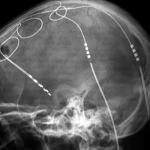
The mindset of autonomy, objectivity, and detachment dominates so many aspects of our society. I often see it on display in the medical community and in the marketplace.
Philosopher Charles Taylor’s concept of the “bounded” or “buffered” self in his magisterial work, A Secular Age, not only reflects the secular age’s view of humanity in relation to a transcendent or spiritual realm. It also manifests itself in our relation to one another (For a brief reflection on his treatment of the “buffered” self, see pages 37-42).
The “buffered” self has replaced the traditional view of reality as “porous” where transcendent forces, those beyond space and time, penetrate and influence us. To use Max Weber’s famous term “disenchantment,” we live in a disenchanted age. Similarly, we wander about in a disengaged epoch.
Far too often, our society views life in transactional terms, whereby we enter into and pull out of contractual agreements without really being affected by them. We presume that we remain detached from one another but fail to realize that the more we commodify relationships the less human we become. Similarly, we can view one another as lab specimens to dissect, not realizing that we cut ourselves in the process of dismemberment.
I have witnessed dismemberment for over three years now in certain quarters of the medical community. Unfortunately, all too often a medical expert’s professional analysis does not account for what our family medical advisor Dr. Robert Lyman Potter calls “intuitive feeling.” And for all their talk of objectivity, determinations to discount others’ observations out of hand because they have not observed them goes beyond scientific analysis. That is not an objective move, but a subjective determination. It leads me to wonder if Søren Kierkegaard was right when he argued that every claim of objectivity involves a sense of veiled subjectivity.
Certainly, scientific observation is critical when the medical professional assigns values and judgments to what they perceive and test. The impressive findings of modern science result from such objectivity. But there are limits to this approach, as Taylor and Potter also argue (See for example Taylor, A Secular Age, 285-287).
For example, our son Christopher often responds differently to loved ones and caregivers who know him well than to outside clinical observers. After all, he is not an automaton. He is not a buffered, but porous self who even in his minimally conscious state can feel and intuit the approach others take to him.
I have witnessed countless times when I think Christopher’s motions are reflexive rather than reflective. Similarly, I have also witnessed a great variety of situations where Christopher is responding consciously. It is not a coincidence that those closest to him are those who comment on his responsiveness. Perhaps at times they project conscious control, but there are others whom I believe dismiss out of hand what non-specialist observers who are empathically and intuitively connected perceive.
I also find such dismemberment in play when dealing with patients’ families. While patients are rightly the primary focus of all care, the patient does not exist in a vacuum. There is a vital sense in which, as Dr. Potter said to me, the patient is Christopher and the family, not Christopher alone. When one discounts the family’s perspectives and refuses to involve them in the care giving process, one hurts the primary patient. Such buffering cuts off the emotional circulation that is needed to maximize opportunities for the possibility of meaningful recovery.
One must account for the holistic dimensions of our humanity, which the social sciences are intended to do, if we are to make a comprehensive assessment of the person who is a patient. We must juxtapose the various disciplines so that the natural and human sciences relate to one another in porous terms rather than discount one another in a buffered way. Otherwise, we will be left with a dismembered view of the human patient, whereby their social and natural aspects of their identity are completely separate, leaving them as a ghost in a machine.
Interestingly enough, Dr. Potter who resonates with my reflections did not come upon this holistic and expansive view of medical practice and ethics in a vacuum. His own course of studies took him beyond the realm of pursuing his doctorate and professorship in medicine at the University of Kansas to obtaining a doctorate in religion, psychology, and ethics at the University of Chicago Divinity School. As personalist ethicists in our respective spheres, we agree that proper assessment of a patient should not be limited to the professional making objective evaluations in a hermetically sealed environment but expanded to include the social matrix of those closest to the patient, whether family, friends, or those caregivers who provide the most intimate care.
We need to open up our emotional pores and not buffer ourselves from assigning meaning and value to interpersonal connections and how they may very well impact a patient’s care. While emotions should not have free reign and cloud careful testing and analysis, which the natural sciences prize, the medical community must account for them in making comprehensive judgments. It is vital that all healthcare professionals integrate the scientific method involving technological precision with keen compassionate engagement.
We must work together in society to re-enchant the universe of patient care. Such re-enchantment does not involve talk of angelic interventions and demonic intrusions or alchemy dictating and distorting scientific analysis and exchanges. Rather, it requires that we do not quench but expand the human spirit in all medical clinical encounters and social interactions.












